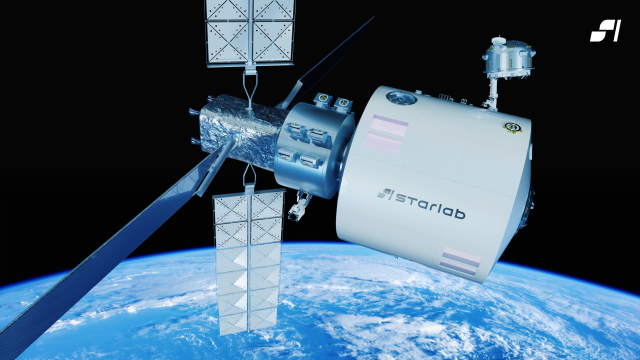In an effort to secure precious access to low Earth orbit, the European Space Agency (ESA) signed an agreement with Airbus and Voyager Space for the use of their commercial space station which is currently under development as a replacement for the International Space Station (ISS).
The agreement explores how the Starlab space station can be used to provide Europe with access to space for astronaut missions and research activities, as well as commercial business development, according to ESA. The space agency signed a memorandum of understanding with the two companies on Thursday, hoping to ensure a smooth transition into Earth orbit after the ISS retires in 2030.
“ESA appreciates the transatlantic industry initiative for the commercial Starlab space station, and the potential that its strong European footprint holds for significant European industrial and institutional contributions to, and use of, said station,” Josef Aschbacher, ESA’s director general, said in a statement.
For over 20 years, ESA has used the ISS as an orbital lab, launching its experiments, research, and astronauts to the space station. Once the ISS retires, commercial space stations are meant to take over.
Starlab was selected by NASA in December 2021 as one of three space station designs that will replace the ISS. NASA allocated $US415.6 million for a trio of Space Act Agreements as part of its Commercial Low Earth Orbit Destinations program, with the two others being granted to Blue Origin and Northrop Grumman.
As part of its $US160 million contract, Colorado-based Voyager Space is collaborating with Europe’s Airbus on the space station, with plans to develop, build, and operate Starlab. Airbus was initially selected to provide design support for Starlab, but the two companies furthered their partnership and the European company was made a core partner behind the project in August. With Airbus’s strong involvement with the space station, Europe guaranteed a spot in low Earth orbit.
“This agreement with ESA is critical as we continue to foster international collaboration in the space domain and move towards succeeding the International Space Station with Starlab,” Matthew Kuta, president of Voyager Space, said in a statement. “We look forward to working with Airbus and ESA to extend Europe’s footprint in space and ensure they remain a leader in the new generation of commercial space exploration.”
The commercial space station is currently scheduled to launch in 2028.
